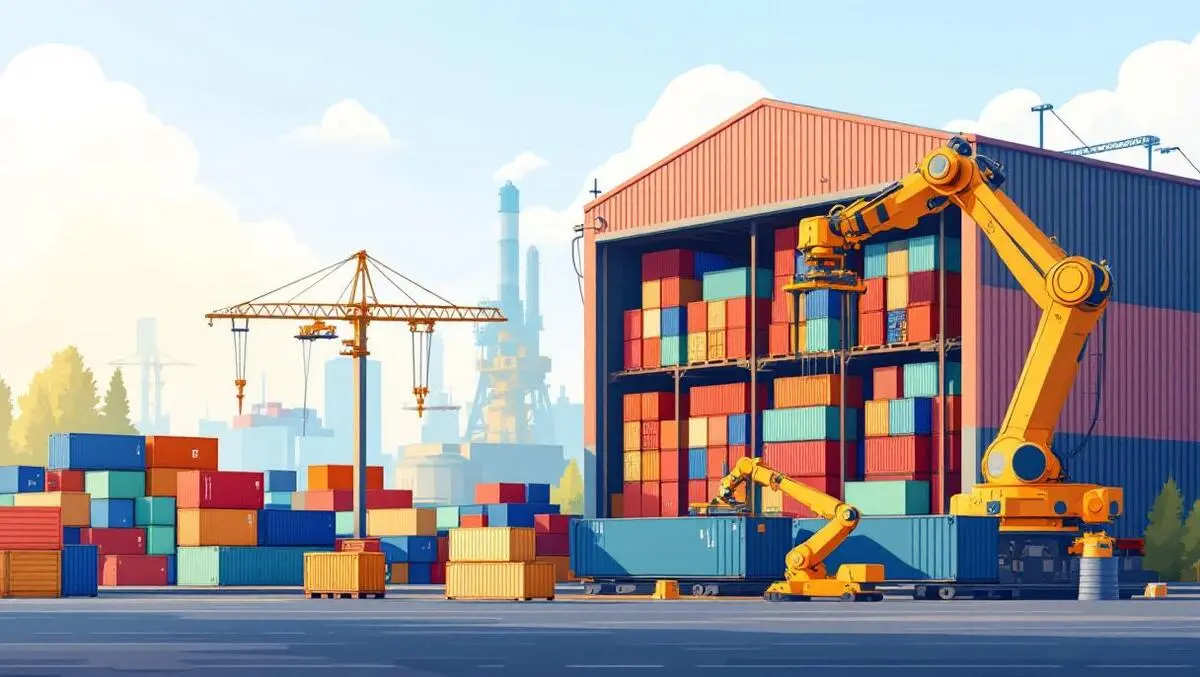
Thyssenkrupp boosts supply chain with Celonis AI technology
Thyssenkrupp Rasselstein has adopted process mining technology from Celonis to enhance transparency and efficiency across its global supply chain operations.
Thyssenkrupp Rasselstein, one of Europe's largest packaging steel manufacturers, supplies 400 customers in over 80 countries from its German production facility, the largest of its kind worldwide. The site relies on more than 300 interconnected systems, creating significant operational complexity.
In response to rising demands within the steel industry and to maintain a competitive edge, thyssenkrupp Rasselstein has prioritised digitalisation and process optimisation, with a specific focus on driving supply chain performance.
Over the past three years, the company has partnered with Celonis to optimise its supply chain processes through artificial intelligence (AI) and process intelligence solutions. As a result, thyssenkrupp Rasselstein has built a data-driven, connected supply chain, which enables proactive risk management, enhanced delivery reliability, and optimisation of critical operations.
"Before Celonis we had limited visibility into our supply chain which made it difficult to react quickly to supply disruptions. Now, we have a real-time overview of our processes, allowing us to manage risks proactively, reduce excess inventory, and improve our delivery reliability. This enables us to make better strategic decisions and ensures seamless production planning," said Dr Michael Pullen, CFO of thyssenkrupp Rasselstein.
The implementation of Celonis technology highlights the complexity of the company's operations and its efforts to leverage process visibility for tangible business benefits.
Celonis' Managing Director DACH, Florian Schewior, commented on the partnership's impact for customers managing large-scale supply chains.
"Our partnership with thyssenkrupp Rasselstein highlights how Celonis helps companies turn complex, fragmented supply chains into intelligent, connected ecosystems," said Florian Schewior. "By embedding AI and process intelligence into the fabric of supply operations, our customers stay agile, can better master disruptions and run more resilient, efficient value chains."
Celonis' APAC Lead, Pascal Coubard, noted the broader applicability of the approach, particularly in resource-rich regions.
"Digitisation helps companies make their processes more efficient and in today's dynamic environment that is vitally important," said Pascal Coubard.
Using Celonis, thyssenkrupp Rasselstein has constructed a digital twin of its supply chain, integrating data from thyssenkrupp Steel Europe with its own production planning systems. This approach provides all stakeholders with a single data source for actionable insights.
The solution is currently operational across more than ten processes and supports over 50 use cases, including procure-to-pay, order-to-cash, inventory management, warehouse operations, and accounts receivable activities.
The company has achieved several measurable improvements since deployment, such as proactive prevention of material shortages, improved delivery accuracy, optimal safety stock levels, and a substantial savings potential in working capital through effective inventory and financial management.
A key feature of the new system is the use of Celonis Action Flows to automate routine supply chain tasks, such as purchase order creation, increasing efficiency and allowing staff to focus on strategic priorities.
AI integration and daily operations
Artificial intelligence now plays a significant role in thyssenkrupp Rasselstein's optimisation efforts. Employees use an AI-powered Celonis Copilot to access and interpret data using natural-language queries, supporting faster, more accessible decision-making without reliance on advanced analytical expertise.
On the production floor, a Celonis Process Copilot provides near-real-time visibility into the status of production materials, further supporting operational agility.
The application of AI extends to minimising waste from unsold materials. The Celonis AI Annotation Builder identifies optimal customers for potentially excess materials, incorporates human-in-the-loop validation, and uses the Orchestration Engine to generate structured email offers to customers. Customer responses are tracked and analysed for continuous improvement.
This combined use of AI and process orchestration has established systems that support prompt responses to market changes and data-driven decision-making throughout the organisation.


